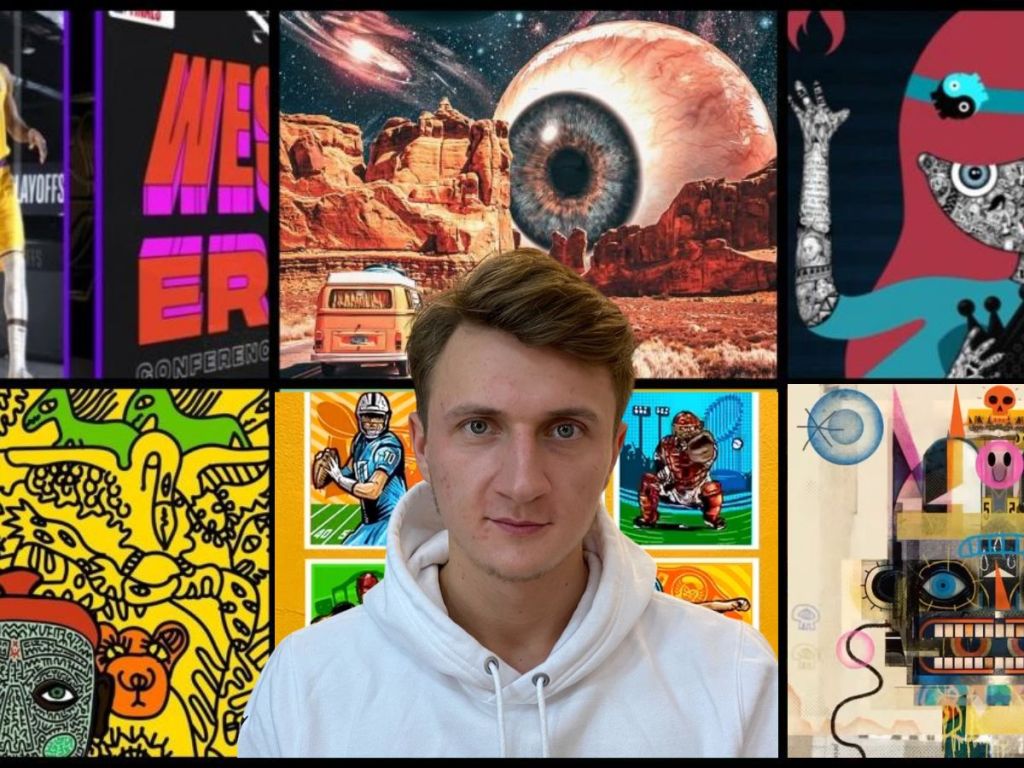After NFT Platform OpenSea raised the white flag to artists in the war on creator royalties and agreed to negotiate, questions remain on how fees will be truly honored long-term.
The Chainsaw spoke to Alex Salnikov, the co-founder of Rarible, to discuss the pertinent subject of creator royalties, the technical difficulties around automatically enforcing creator royalties at the smart contract level, as well as Rarible’s three-pronged approach to supporting artists.
This conversation was conducted in the hours prior to OpenSea’s announcement on supporting creator royalties, so it has been appropriately edited for factuality and relevance.
“We are seeing two directions for the whole market”, remarked Salnikov.
“Either collectively we come up with a way to enforce royalties and then marketplaces are all forced to turn [them] back on together, or the market is going to a place where nobody respects them.”
“That’s the sad truth”, he conceded, concluding that Rarible “will do whatever is in our hands to achieve [a pro-royalty] outcome.”
OpenSea Reverses Decision
Following a week of tumultuous community backlash, leading NFT marketplace OpenSea surrendered in the feud on artistic royalties, agreeing to honor them over three weeks prior to their original December 8 deadline, as announced in a Twitter thread.
However, the impact of this may well only be short-lived.
OpenSea explained that “in the last week, almost half of the creator fees set by the top 20 collections were ignored”, noting that “this amounts to well over $1M for creators left on the table.” A bar chart illustrates this weekly declining trend of percentage fees.
In light of this, OpenSea declared that “unless something changes soon, this space is trending toward significantly fewer fees paid to creators”, asserting that “no policy that we implement will reverse this trend if this behavior continues.”
Over the previous few months, the consistent rhetoric from marketplaces such as X2Y2, LooksRare, Magic Eden and OpenSea was that technical limitations within the smart contracts prevented them from implementing creator fees.
Now, OpenSea has effectively offset the emphasis of responsibility onto the creators and collectors, sharing tips and tricks to incentivise communities into paying “fees” instead of actively pursuing a technological solution.
It remains to be seen which parties will truly prosper from what OpenSea called a “collective inflection point” in NFT history.
The “unapologetically pro-artist & pro-royalties” marketplace SuperRare spoke vehemently about OpenSea’s dehumanisation of artists through the use of the word “fees”.
Blockchain Complexities
In our conversation, Salnikov candidly explained why creator royalties are unable to be easily enforced by marketplaces into NFTs smart contract, the ERC-721, a concept which many participants within the space are genuinely struggling to comprehend.
“So, imagine Bored Ape’s Yacht Club (BAYC) NFTs. You can trade them on multiple marketplaces, and on the blockchain it looks like a smart contract. But the smart contract of an NFT is separate from a smart contract of a marketplace.
And while that can sound complicated, you can think about it as books. There’s two separate registries: one registry is the smart contract of the NFT. It contains information about who owns what, and about changing hands. So, if I transfer my NFT, it will record it in the book. But the marketplace has another book. And these books are separate.
So, whenever you do a transfer, this [first] book doesn’t know any information about the price or the royalties, it is just the book that is managing the transfer. So, that’s why it’s technical to transfer that information from one book to another. It is complicated.
This is maybe possible on another blockchain, or with another technical implementation, but just fundamentally it is very hard. It will be possible in the future, but it’s not possible now.”
According to Salnikov, existing collections cannot simply upgrade to a new iteration of the ERC-721 standard, amalgamated with the other registry, or be wrapped in a new smart contract because they are “set in stone”.
Rarible’s Approach
Similar to SuperRare, fellow marketplace Rarible has also unequivocally declared their support of artist royalties, offering three features endeavoring to enforce them, including incentivising people to pay royalties by giving them “royalties cash back” in the form of $RARI (up to the amount they spent)”.
Questioned if this strategy is sustainable long-term, Salnikov stated that “it is contingent” on whether “the amount that we pay in royalties cashback” is “compensated by the fees”.
The model is directly influenced by attracting and retaining users on the platform, otherwise it’s not sustainable, he explained.



